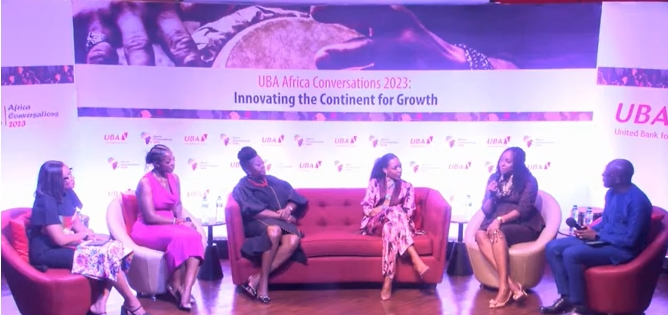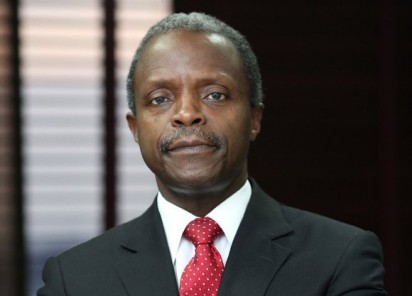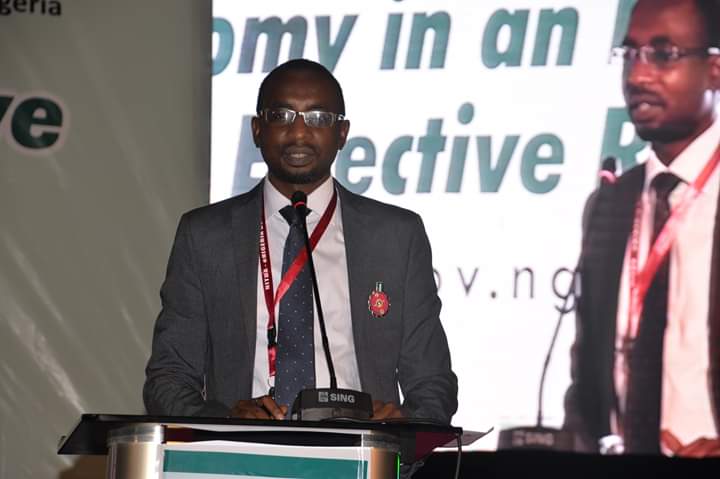Nigeria’s Vice President, Professor Yemi Osinbajo, has said plans are underway by the federal government to set up a national technology and innovation council to cater for technological advancement in the country.
Vice President Osinbajo stated this in an interview with journalists at Co-Creation Hub during his visit to ICT/Innovation hubs/companies in Lagos on Tuesday.
“One of the things we are trying to do is to set up a council of sorts. Already, we have an industrial and competitiveness council. We want to look at doing one for technology and for innovation as well,” he said.
Osinbajo said technology will massively dictate the future of the country, while also stressing that the future is here already.
“There is so much going on, so many young people, and so many creative ideas. It’s just incredible. And that tells you what the future is going to look like. Already, as we always say, the future is here.
“I have seen for myself the sheer creativity. Practically every type of enterprise has been disrupted by the technologies that we see. And a lot of the payment systems that we have been seeing, a lot of the technology companies that we see are doing incredible things.
“A lot of the technologies and innovators we’ve seen got the attention and to where they are by being innovative and being creative. So, the only way to keep ahead of the curve, the way to keep ahead of anyone else is by increasingly innovative and by finding newer ways of doing things better.
“My advice is that the only way to keep ahead is by ensuring that you are ahead in terms of innovations and technology,” the Vice President stated.
Question: What’s your impression of the seven Technology & Innovation hubs you visited?
Vice President: It has been an exciting day. We’ve been, as you said, to a number of technology enterprises and hubs. We’ve been to Paystack, Andela, Flutterwave, Workstation, FarmCrowdy, African Fintech Foundry, and here we are at Co-Creation Hub.
What strikes one immediately is the sheer amount of innovation that is available and is going on. And I must confess that it is unbelievable that so much is going on.
I have been talking for a few months now about some of the businesses and the hubs that I visited today. I had a chance to chat and talk about various things. What strikes you is that there is so much going on, so many young people; so many creative ideas. It’s just incredible. And that tells you what the future is going to look like. Already, as we always say, the future is here. I have seen for myself the sheer creativity. Practically every type of enterprise has been disrupted by the technologies that we see. And a lot of the payment systems that we have been seeing, a lot of the technology companies that we see are doing incredible things.
Question: How can the Federal Government harness these tech talents?
Vice President: As you know, I chair the Economic Management Team of the Federal Government. I’m also chair of the National Economic Council. Technology is obviously the future; the future of our economy, the future of commerce and the future of industry. We recognize this in the Economic Recovery and Growth Plan and that’s one the reasons why I am here in the company of the Honourable Minister of Science and Technology, the DG of National Information Technology Development Agency (NITDA) and, of course, the Lagos State Commissioner for Science and Technology, and Commerce. We recognize that this is the way commerce is going to develop and that is why we are taking, first of all, such an active interest in their personal engagement.
We are also trying to see how we can collaborate, how we can partner with all of these enterprises and, in some cases, with membership organizations they have in order to be able to create the kind of environment that makes it possible for this to happen seamlessly and in a way that we actually can have a multiplication or replication of all we are seeing today.
So, we are collaborating already with a number of hubs and also with some that we are starting. For example, we are doing some work in partnership with Civic Hub in Abuja. We are doing some with the Humanitarian Hub in the North East, where we are focusing on the humanitarian challenges in the North East of Nigeria, and creating technology and innovation that could be helpful in solving some of their problems. We also have a Climate Change Hub in collaboration with the Lagos Business School. And, of course, we intend to collaborate and partner with Co-Creation Hub and several other hubs.
The point is that we are anxious not to get in the way. Government can sometimes get in the way of enterprise. What we really need to do is to partner and to work hand in hand with them so that we help in whatever way, in whatever difficulty that they have. In some case, it might be credit; in some others, it may just be in creating and ensuring the right policy.
So, one of the things that we are trying to do is to set up a council of sorts. Already, we have an industrial and competitiveness council. We want to look at doing one for technology and for innovation as well so that we bring in some of the key players and thinkers around technology working with government and government officials to develop policy and various ways we can help them to do what they are doing better.
Question: Advice to existing and potential tech developers in the country?
Vice President: I’m going to borrow from the wise Minister of Science and Technology, who, earlier in the day in our discussion, said something. It is that a lot of those who are doing these enterprises, a lot of the technologies and innovators we’ve seen got the attention and got to where they are by being increasingly innovative and creative.
So, the only way to keep ahead of the curve, the way to keep ahead of anyone else is by increasingly innovative and by finding newer ways of doing things better. My advice is that the only way to keep ahead is by ensuring that you are ahead in terms of innovations and technology. From what I’ve seen here today, it is obvious that these guys do not have any plans to rest on their oars, as they say. They certainly intend to keep ahead. I’m excited to say that the advice they need is the advice they’ve already taken. I hope that when we come back to see them, what we see here would be much more advanced than what we are seeing here today.





